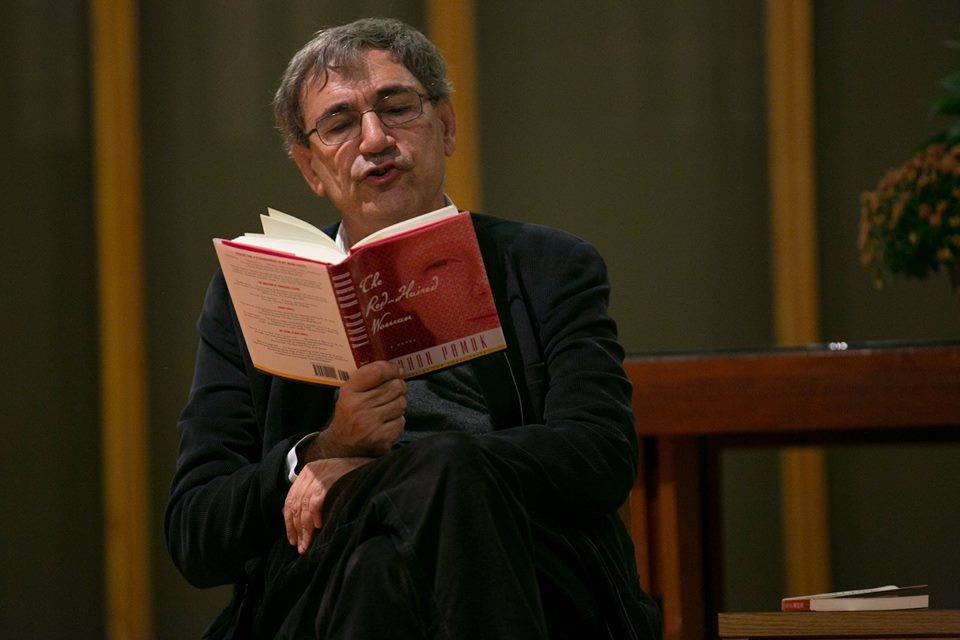by Sara Kowalski, Class of 2017, Humanities Fellow
As part of their Memory and Forgetting series, the Humanities Center has hosted and will continue to host some amazing guests this year. Our October guest was the esteemed Nobel Laureate and Turkish novelist Orhan Pamuk. In addition to class visits and a lunchtime Q&A, he also delivered a public lecture at the Interfaith Chapel titled “Memories and Myths.”
On the “myth” side of things, Pamuk discussed how myths become part of our daily life, how old books become myths, and how old myths are inserted into new stories and novels. Sometimes, this has the effect of making a religious story more secular, or making any story more universal. He also discussed how myths are vehicles for ideas, theories, and ideologies. Similarly, myths have been used by cultures throughout history to legitimize social roles, behaviors, and expectations.
On the “memory” side of things, Pamuk gave examples about how he integrates his own memories into his stories. However, as a novelist who wants to represent many different types of people in his stories, he cannot rely on his memory alone. That is why Pamuk makes a habit of collecting other people’s memories by interviewing them. He then holds on to these interviews for a long time, until it is time to write a character or scene inspired by them. Pamuk believes this makes his stories more personal and relatable.
An added advantage of this practice is that he is able to hold onto old crafts, arts, and techniques that are dying out due to the ongoing industrialization of Turkey—for example, the old way of digging wells. And finally, Pamuk has been able to observe and convey in his novels the way memory can be reshaped to deal with trauma and guilt.
Pamuk’s visit was arranged by our very own Sevinç Türkkan, a professor of Turkish and translation here at Rochester.


